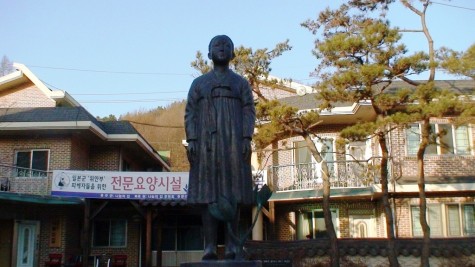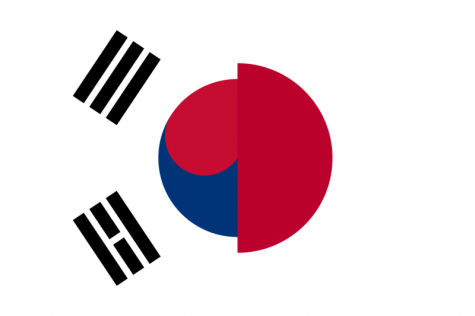Japan’s Apology to Uncomfortable Past
World War Two. A period of great atrocities and tragedies that ignited disputes and controversies before, during, and even after its time. Racism, prejudice, lost lives, mutations, environmental loses; some of the many catastrophes that occurred during this war. One of the many groups of people affected by the war was the Korean women at that time, who were used as ‘Comfort Women’ by the Imperial Japanese Army for sexual relief. Roughly seven decades after the end of the World War, controversies and disputes still remained over the ‘Comfort Women’ issue, and relationships between Japan and South Korea had been very tense and electric. Recently, however, Tokyo and Seoul came to an agreement over wartime grievances of the past, and the Japanese government, expressing their sorrow and apology, will pay $8.3 million as a fund for surviving victims.
During Japan’s colonial rule over Korea from 1910 to 1945, women and girls of any age were used as ‘Comfort Women’ at military brothels, starting with hired Japanese prostitutes and individuals and later coerced slavery of women in foreign countries. Estimated numbers of ‘comfort women’ ranges widely, with some sources claiming 20,000 and others claiming over 400,000. Prior to the most recent agreement between South Korea and Japan, numerous apologies and compensations were made by both private Japanese donors and the Japanese government, with examples including the $800 million aid to the Korean government in the 1965 treaty, official apologies by prime minister Kiichi Miyazawa, additional compensations and a signed apology by the prime minister to the victimized comfort women in 1994, and further compensations by the government to the individual women in 1998.In this most recent cause of contrition and compensation, both the Japanese and South Korean foreign minister considered the agreement as a ‘final and irreversible resolution’ of the issue.

A statue of a comfort woman.
Despite the positivity from both sides of the government, former ‘Comfort Women’ themselves were significantly less enthusiastic of the agreement. Lee Yong-soo, 88, a former ‘Comfort Women’, explains, “what we demand is that Japan make official reparations for the crime it had committed’. Reparation, in case you were wondering, is the action of making amends for wrong doings, typically by paying money or otherwise helping those who have been wronged. Yong-soo continues by saying, “I will completely ignore the agreement. There is nothing in it for the victims. We have been clamoring all these years for Japan’s official apology and legal compensation for creating comfort women.” Another women, Yun Seung-gil of the Tangun National Peaceful Unification Association, explains “We cannot accept the agreement, which has been settled hastily.” Negative criticism from the South Korean population seems to indicate that governmental recognition and agreement of the issue simply is not enough to resolve this deeply-rooted issue of World War II.
Although doubts over the agreement remain in the civilian population, the agreement between the two governments will lead to many positive developments, both in terms of friendship and business. Because both South Korea and Japan are crucial allies to the U.S., American politicians, including Secretary of State John Kerry, eagerly praised the agreement between the two nations. Ms. Park, the president of South Korea, appealed to the public to accept the deal from Japan, and added that her government wanted to see a deal before she died. Japan Korea resolve will lessen America’s struggle and impediment over efforts to strengthen relationship with its Asian allies. A join front with the Asian countries will allow America to confront issues such as China’s assertiveness over land and North Korea’s manufacturing of nuclear weapons.

In 2007, Japanese Prime Minister Shinzo Abe ignited outrage in South Koreans when he revealed a study that claimed that coercion was not involved in the use of ‘comfort women’. Prime Minister Abe was firm regarding his statement on the ‘Comfort Women’ matter, clarifying in 2014 that he had no intention of renouncing or altering his claim. In the most recent agreement between South Korea and Japan, however, Prime Minister Abe made a direct apology, expressing it both through the Japanese foreign prime minister and a telephone call with Ms. Park. Although many South Koreans and some Japanese are concerned and unsatisfied with the deal, this agreement will hopefully lead to a bright, teeming relationship between the countries, and deepened connections with America and its alliances.





